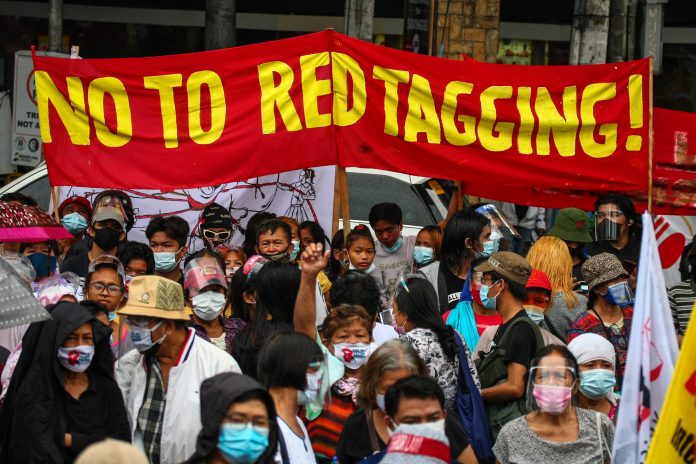Parliamentarians from across the Southeast Asian region called for an end to the red-tagging of candidates a month before the national elections in the Philippines.
“The smear campaigns against candidates should stop immediately,” said Charles Santiago, a Member of Parliament in Malaysia and head of the ASEAN Parliamentarians for Human Rights.
He said that it is “incumbent on all parties concerned, including the relevant authorities and candidates,” to ensure a peaceful environment during all the stages in the electoral process.
Santiago said the elections should be “free from fear, intimidation, harassment, and violence,” adding that it is “an important ingredient to conduct a genuinely democratic process.” he added.
In a statement, the parliamentarians said they “are alarmed by the dangerous use of offline and online disinformation” during the elections campaign in the Philippines.
The organization noted that the outgoing administration of President Rodrigo Duterte has been known for attacking its critics and “red-tagging” them.
“Red-tagging” is the “baseless accusation of certain people as communists, terrorists, or state enemies,” which, APHR said, has resulted in the individual identified being killed.
Most of those who become victims of “red-tagging” are social activists, NGO workers, and even Church leaders.
As of August 2021, rights group Karapatan recorded 33 activists who were “red-tagged” and killed, while a total of 421 activists were slain during the six-year term of Duterte.
Only this week, Vice President Leni Robredo has been tagged as having links with the underground communist movement by a retired military colonel.
Robredo, who is running for president on May 9, said the “red-tagging” heightened when she started drawing massive crowds during her provincial sorties.
“I will reiterate that I am not forming a coalition with anyone who uses violence in pushing for whatever agenda,” said the vice president in a statement on Thursday, April 7.
“It’s clear that the motivation of these endless tagging is to stop the momentum of our People’s Campaign,” she said, adding that her political rivals “can’t believe that it is possible for ordinary Filipinos to come together in the name of hope.”
“Such attacks against candidates who have experienced public ‘red-tagging’ or ‘narco-tagging’ are a form of intimidation that should not take place in a democracy,” said APHR’s Santiago.
He said that “not only will [the disinformation] have a significant impact on the fairness of the elections, they also pose a serious threat to the safety and security of candidates.”









